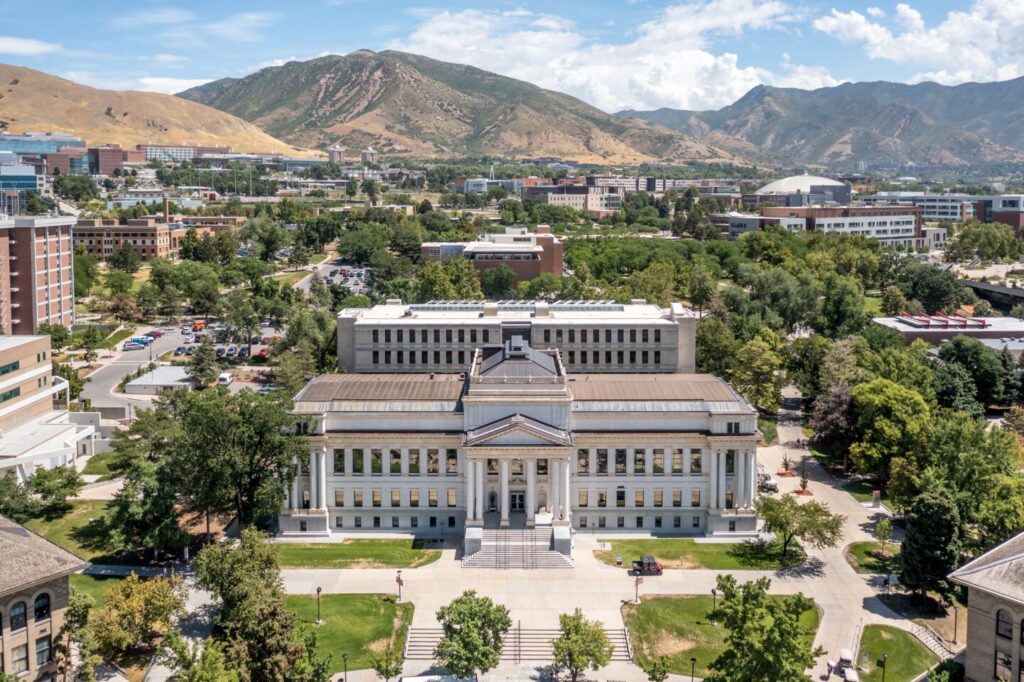
Researchers at the oldest college in Utah are opening a medical cannabis research center and seeking for a DEA-approved grow site in order to overcome some of the regulatory hurdles.
On Nov. 21, the University of Utah announced the launch of the new center and its initiative. University of Utah Health, in partnership with the state of Utah, launched a new research initiative to push forward the scientific understanding of medical cannabis and help patients and providers make better informed health decisions.
In the years following the launch of the Utah Medical Cannabis Program, Utah State Legislation identified a great need for more medical cannabis research to catch up with the growing number of unproven medical claims. To do this, and fund the center, the Utah State Legislature approved House Bill 230, and it was signed by Utah Gov. Spencer Cox on March 15.
High Times reported last March that the University of Utah confirmed that it’s starting the early planning phases to build a Center for Medical Cannabis Research. On July 1, the University of Utah established the Center for Medical Cannabis Research (CMCR) to create research opportunities to support the efficacious application of cannabis in our state.
Could the center help provide evidence to support medical claims in the future? “The Center for Medical Cannabis Research is focused on creating opportunities for researchers to have the necessary support to begin answering these types of questions,” Valerie Ahanonu, B.S., senior manager of CMCR, told High Times in an email.
“As cultural views on cannabis have shifted and states have opened access to patients seeing benefits with medical cannabis, research within the field has been a leading proponent to bolstering or dispelling these claims. From epilepsy to oncological supportive care, we have seen research bring to light aspects of safe cannabis use that address patients’ needs and identify risks surrounding cannabis use as well.”
Ahanonu continued, “The CMCR plans to be a hub for translational research that through pilot grants, funds collaborative studies and trials that not only focus on advancing our understanding of evidence based medical cannabis outcomes, but also focuses on addressing the standards and quality of medical cannabis products made available to patients. By creating a network of multidimensional researchers working collectively we hope to inspire a bench to bedside model that advances the overall understanding of the therapeutic benefits and risks of medical cannabis.”
The CMCR listed several core strategies to achieve this goal:
- Supporting research about medical cannabis within the University of Utah and statewide
- Improving patient, provider, and pharmacist education about cannabis risks and benefits
- Working to instate an DEA-approved grow site for research-grade medical cannabis
Local leaders are hopeful. “This is one of the premier research institutions in the nation,” said Rep. Jennifer Dailey-Provost, MBA, who represents District 22. Dailey-Provost sponsored the bill that funds the CMCR. “We couldn’t ask for a better place to keep the heart of a meaningful research program than the University of Utah.”
Dailey-Provost is a doctoral candidate in public health at University of Utah Health, and believes the university is well-equipped to handle this type of research, and she also recognizes the great need for more data. “We keep hearing from providers that they just don’t have enough information to comfortably recommend this for patients,” Dailey-Provost says. “What we ultimately need is reliable, evidence-based research information on the medication that we are already offering to patients in the state of Utah.”
Jerry Cochran, M.S.W., Ph.D., interim director for the CMCR, describes the spectrum of research the center will support as “bench to bedside.” Starting with pilot grants to help scientists begin projects on medical cannabis, the CMCR will promote research ranging from chemical characterization of the active components of cannabis through to late-stage clinical trials.
The center will partner with the Genetic Science Learning Center at the University of Utah to create educational materials to inform the public about medical cannabis. The Genetic Science Learning Center will develop materials designed to help reach patients and providers with the knowledge to make informed decisions.
The CMCR also plans to work with the Spencer S. Eccles Health Sciences Library to produce an accessible database of the most rigorous and up-to-date information in the field.
Hurdles of Medical Cannabis in the U.S.
The center acknowledges the roadblocks they face as medical cannabis research is hampered due to the federal status of cannabis. “One significant hurdle to cannabis research is the limited supply of research-grade medical cannabis, especially from sites that are approved by the DEA,” the university reported. “The CMCR aims to eliminate this bottleneck by supporting the establishment of an DEA-approved cannabis grow site for research.”
Setting the stage for change in the way medical cannabis research is hampered at the federal level, on Dec. 2, 2022, President Joe Biden signed into law the “Medical Marijuana and Cannabidiol Research Expansion Act, H.R. 8454,” (the Cannabis Research Bill).
In Utah, medical cannabis patients began applying for ID cards on July 4, 2019, and medical cannabis cultivation began in summer of 2020. Regulators finally issued dispensary licenses in Jan. 2020, about one year and two months after the law passed. Medical cannabis sales began in October 2020, about two years after voters approved the law.
But doctors in Utah are reluctant to give out recommendations for medical cannabis as they know it has been marketed as a cure-all and that there are many unproven medical claims. “In certain circles, medical cannabis is being pushed as a cure-all, but I think it’s going to help certain things and not others,” Cochran said in the news release. “Science needs to take the lead in this area so that we continue to help people.”
Read full article on High Times

